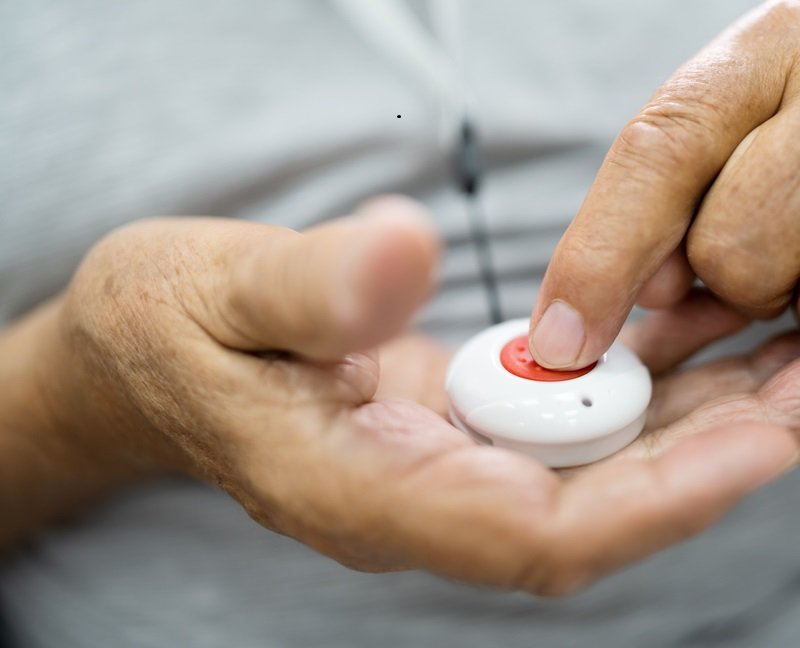As the population ages, nursing homes play an increasingly crucial role in providing care and support for elderly individuals and those with complex medical needs. However, ensuring the safety, security, and well-being of residents in these facilities can be challenging, given the vulnerabilities and risks associated with age-related conditions and varying levels of dependency. Video surveillance emerges as a powerful tool in addressing these challenges, offering enhanced oversight, protection against abuse and neglect, and peace of mind for residents and their families. In this blog, we explore the importance of video surveillance in nursing homes and the benefits it brings to residents, staff, and administrators alike.
Enhanced Oversight and Monitoring:
- 24/7 Surveillance Coverage: Video surveillance systems provide round-the-clock monitoring of key areas within nursing homes, including resident rooms, common areas, hallways, and entry points. This continuous oversight allows staff and administrators to promptly detect and respond to potential safety hazards, security breaches, or unusual activities, ensuring a safe and secure environment for residents.
- Prevention of Unauthorized Access: Nursing homes often have restricted areas such as medication storage rooms, staff-only zones, and administrative offices. Video surveillance helps prevent unauthorized access to these areas by monitoring entry points and providing visual verification of individuals seeking entry. Access control measures can be integrated with surveillance systems to enhance security and accountability.
Protection Against Abuse and Neglect:
- Deterrent to Misconduct: Tragically, instances of abuse, neglect, or mistreatment can occur in nursing homes, posing significant risks to vulnerable residents. Video surveillance acts as a powerful deterrent to such misconduct by creating a transparent and accountable environment where staff members are aware that their actions are being monitored and recorded. The presence of cameras helps deter abusive behavior and fosters a culture of respect and compassion towards residents.
- Facilitation of Investigations: In the event of allegations or suspicions of abuse or neglect, video surveillance footage serves as crucial evidence for investigations and legal proceedings. Recorded footage provides objective documentation of incidents, allowing authorities, family members, and administrators to ascertain the facts, hold perpetrators accountable, and pursue appropriate disciplinary or legal action. This transparency helps ensure justice for victims and reinforces the commitment to resident safety and dignity.
Promoting Resident and Family Reassurance:
- Peace of Mind for Families: Families entrust the care of their loved ones to nursing homes with the expectation that they will receive compassionate and respectful treatment. Video surveillance offers peace of mind to families by providing visibility into the daily activities and interactions within the facility. Knowing that their relatives are under constant observation and that any concerns can be promptly addressed through video evidence alleviates anxiety and strengthens confidence in the quality of care provided.
- Resident Safety and Advocacy: For residents themselves, video surveillance serves as a form of advocacy and protection, ensuring that their rights are upheld and their well-being is prioritized. The presence of cameras acts as a safeguard against mistreatment, neglect, or exploitation, empowering residents to report concerns without fear of reprisal and fostering a culture of trust and accountability within the nursing home community.
Operational Efficiency and Training:
- Incident Response and Training: Video surveillance footage serves as a valuable resource for incident response, staff training, and professional development initiatives. By reviewing recorded interactions and incidents, nursing home administrators can identify areas for improvement, tailor training programs accordingly, and reinforce best practices in resident care, communication, and conflict resolution. This continuous learning and feedback loop contribute to the overall quality of care and staff competence.
- Operational Insights and Compliance: Surveillance data can also provide insights into operational efficiency, facility utilization, and compliance with regulatory standards. Administrators can analyze patterns and trends in resident activities, staff workflows, and environmental conditions to optimize resource allocation, improve workflow processes, and ensure adherence to regulatory requirements such as staffing ratios, medication administration protocols, and infection control measures.
Considerations for Ethical Implementation:
- Resident Privacy and Consent: While the benefits of video surveillance are undeniable, it’s essential to balance the need for oversight with residents’ privacy rights and dignity. Nursing homes must establish clear policies and procedures regarding camera placement, recording practices, access to footage, and obtaining resident consent where applicable. Transparent communication with residents, families, and staff about the purpose and use of video surveillance helps mitigate privacy concerns and ensures ethical implementation.
- Staff Training and Accountability: Effective utilization of video surveillance systems requires adequate training for staff members responsible for monitoring, accessing, and managing video footage. Training programs should emphasize the importance of ethical conduct, respect for residents’ privacy, and compliance with organizational policies and legal requirements. Establishing mechanisms for accountability, such as regular audits and review processes, reinforces the responsible use of surveillance technology and promotes a culture of trust and integrity within the nursing home community.
Conclusion:
Video surveillance plays a vital role in enhancing the safety, security, and quality of care in nursing homes. By providing enhanced oversight, protection against abuse and neglect, and peace of mind for residents and families, surveillance systems contribute to the creation of a transparent, accountable, and compassionate care environment. When implemented ethically and responsibly, video surveillance strengthens resident advocacy, empowers staff to deliver high-quality care, and fosters a culture of trust and accountability within nursing homes. As technology continues to evolve, nursing homes must embrace video surveillance as a valuable tool for promoting resident safety, dignity, and well-being in the pursuit of excellence in elder care.





